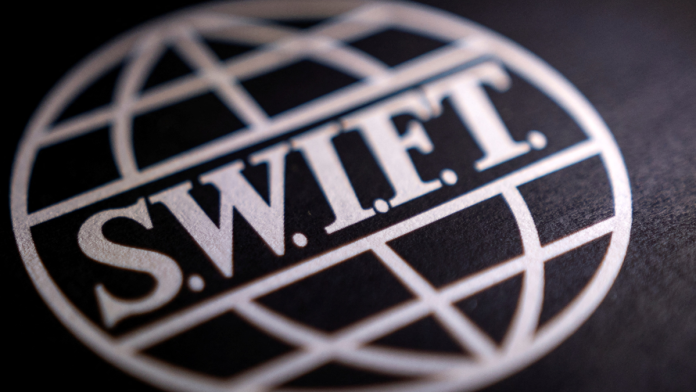Almost four years after the Kremlin’s war on Ukraine began, many Russians have adapted to life without the SWIFT banking and payment system. Several major banks were cut off from SWIFT in 2022 under Western sanctions, and Visa and Mastercard stopped operating in Russia.
Natalia, a consultant with a business in Germany, now sends rubles from the sanctioned T-Bank to Armenia using only the recipient’s phone number. The transfer takes minutes, and she then sends the money in euros to a European bank. The double conversion reduces the final amount by about 10%.
Many Russians follow similar routes. Phone-number-based transfers through apps from banks like Sberbank PJSC allow sending money to countries such as China, India, Serbia, South Africa, and Turkey.
Inside Russia, the Mir card system now handles most local payments. The SBP, or Faster Payments System, run by the Bank of Russia, also supports cross-border transfers to several nearby countries, mainly former Soviet republics, offering another alternative to SWIFT.
Fintech Intermediaries and Crypto Support Cross-Border Transfers
Oleg Vyugin said that after the initial shock of sanctions, new payment chains quickly took shape. Many people now rely on intermediaries or crypto tools, and some companies claim they can handle transfers of any size.
Many card-to-card payments go through fintech firms in countries like Kazakhstan or Armenia. These intermediaries provide legal but indirect routes, and authorities in both countries say their laws do not restrict transfers with Russia.
In the past month, many Russians had their Revolut accounts frozen after new European Union sanctions. The measures ban electronic payment and money services for Russians without EU or Swiss residency and also affect some crypto platforms, making transfers more difficult.
Criminal internet under fire — Western allies choke off Russia’s “bulletproof hosting” lifeline.
Small and medium-sized businesses depend heavily on agents. Dmitry, who imports toilet bowls from China, uses an agent who moves money through several intermediaries to hide any Russian links. Fees that reached 7% in 2024, during US warnings about secondary sanctions, have now dropped to around 1.5%, and transfers take about five days.
Ivan, a payment agent in Serbia, said many transfers move through Turkey and other third countries, with a large portion handled through crypto, which is legal in Serbia.
Large businesses use more direct channels where possible. VTB Shanghai, the Chinese arm of Russia’s second-largest lender, still operates despite sanctions.
SWIFT Cut-off creates limitations
Russians travelling abroad now have fewer payment options. With global card networks leaving Russia, many carry US dollars or euros to cover hotels and daily expenses.
Some countries offer SBP-linked QR-code payments. In Uzbekistan, certain hotels accept SBP QR codes, and Russian banks launched similar QR services in Turkey in March, though users reported disruptions.
Despite new tools, many travellers still rely on cash or cards issued in countries like Armenia or Kazakhstan, which work normally because they are not linked to Russian banks.
Anatoly Aksakov, head of the financial markets committee in Russia’s lower house of parliament, said businesses have built effective alternative payment channels under sanctions.
Baemin faces possible sanction as FTC reviews mounting allegations of pressure on restaurants.
Companies Build Longer Chains While Digital Tools Expand
Some businesses use complex payment chains involving several countries, especially Turkey, to keep imports and exports moving. These longer routes reduce the risk of payments being blocked.
Anton Tabakh, chief economist at Expert RA, said companies operate in an unstable environment, often relying on multiple providers at once. Payment times are longer, and systems can change quickly.
Crypto cards provide another option. The A7A5 token, created by A7 — a cross-border payments company owned by Ilan Shor and the sanctioned lender Promsvyazbank — processed 7.5 trillion rubles (about $92.5 billion) in the first half of 2025.
Inside Russia, daily payments have shifted away from Apple Pay and Google Pay. People now use pay stickers or local banking apps for contactless payments in stores and on transport.
Aksakov said traditional systems are gradually giving way to digital finance as people adapt to new conditions.


